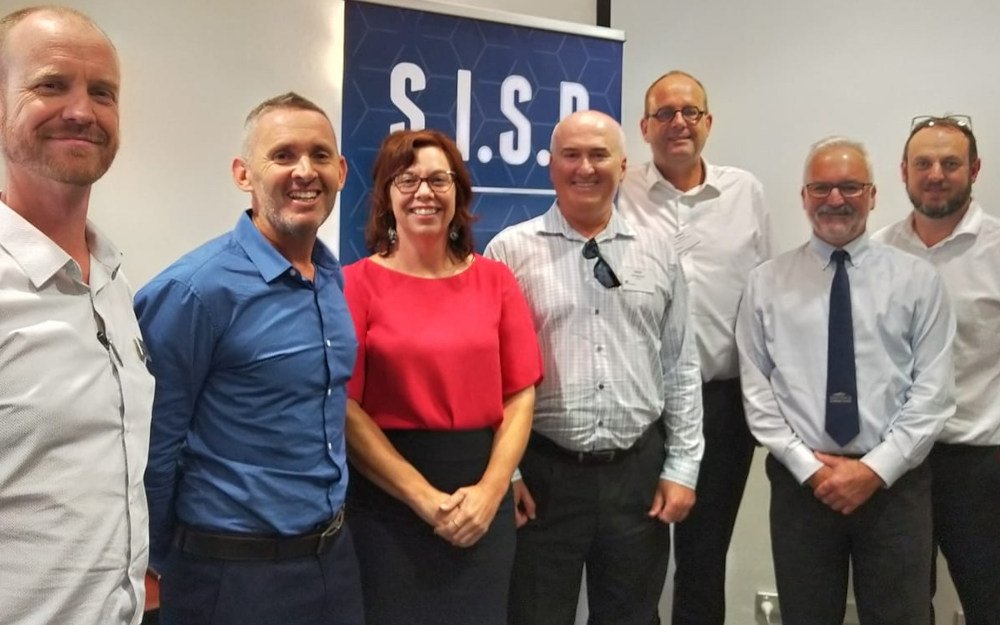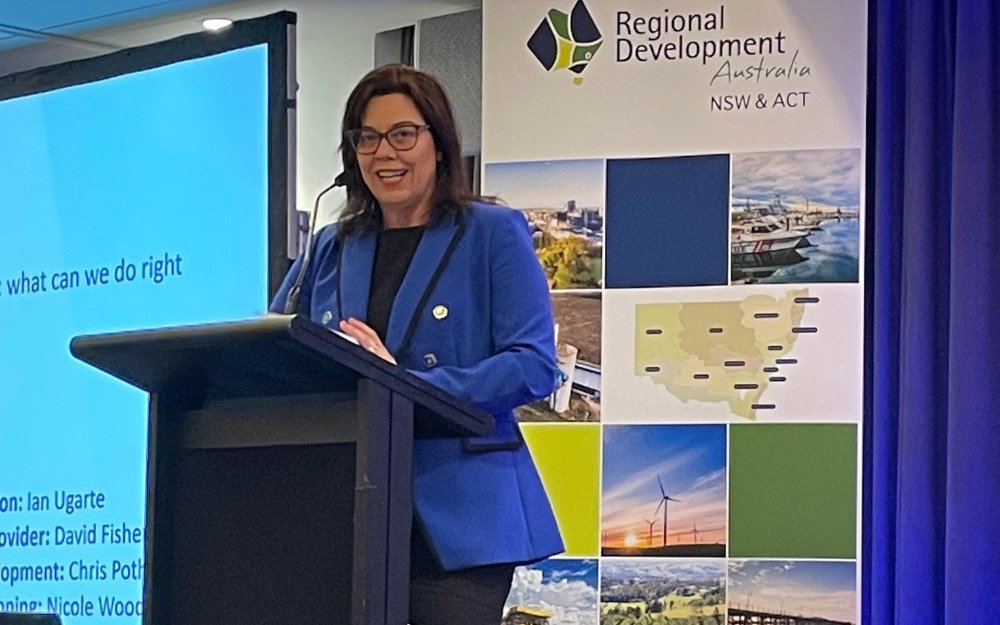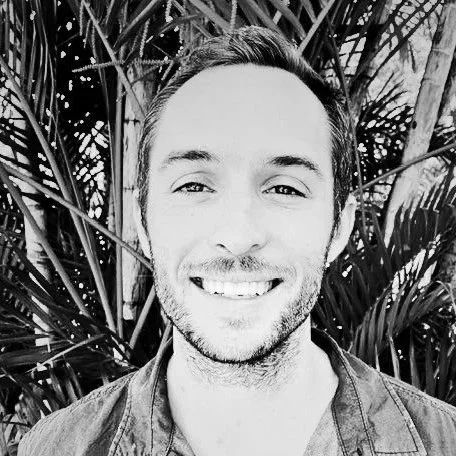Kerry Grace On Regional Generosity And Its Influence On Social Enterprise Ecosystems
Impact Facilitator, Kerry Grace is a thought leader and speaker who has spent most of her life living in regional Australia. Kerry applies her skills in leadership, community and economic development and community engagement to amplify the strengths of regional communities.
Kerry has been working in the social impact space since 2000 when she started delivering work for the dole programs in the Illawarra. While there wasn’t a language for social impact in those days her work has revolved around capacity development in regional communities.
In her role as the Director of Regional Development for Regional Development Australia in the Mid North Coast and Norfolk Island (2016-2023) Kerry undertook dozens of social and economic impact programs including the development of a workforce app designed to make job finding easier for long term unemployed people and small employers. In 2023 Kerry created regional social impact conference, Social Impact in the Regions. The conference will run each September for the following decade.
Kerry discusses the intricacies of how regional communities share resources and why this is influencing the growth and development of the rural social enterprise ecosystem.
Highlights from the interview (listen to the podcast for full details)
[Tom Allen] - To start off, could you please share a bit about your background and what led to your passion for supporting purpose-driven organisations in regional communities?
[Kerry Grace] - My work background started in the corporate sector, but when I think about what drove me to work with purpose-driven entities in regional communities, it was actually growing up on a farm. I grew up on a farm in the mid North coast of New South Wales in Kempsey. My family was from Bowraville, which was a community not too far away, and I always saw immense generosity among farmers. I saw people helping each other out, and I particularly enjoyed when it was time to pick potatoes, so everybody would come together, and I'd get to drive a tractor as a young kid. As I grow older, I see it's those foundations which have influenced my work. I did work with corporates in my early career. Like many kids of the time, I got out of the regions as quickly as I could and headed to the city. I spent about eight years in Sydney working across different corporate roles in advertising, but it never quite felt right to me. At that time, I didn't know what the language was for social impact, so it took a long time for me to find my place in that area.
There are just so many lessons from growing up in the country on a farm aren’t there?
There really are, but I'm a bit of a hopeless farmer. I'm good at growing grass, that's about it! I do live on five acres of land and have alpacas; so even though in a commercial sense I'm not a farmer, being connected to the land is something that's important to me from a well-being point of view. I have a small orchard, and being able to share fruit, herbs and eggs with people is important to me. That teaches me constantly about what generosity and impact is and how you can have impact on someone's life by doing something simple like sharing a meal.
Through your work as founder of the Evolve Network, how are you supporting the regions and purpose driven business leaders?
As suggested by the name Evolve Network, it has evolved a lot over the 20 years since it was founded. When it was founded back in 2004, I had two small children and then another one two years after that. I needed to work out how I could support myself and do what I valued while I had young children. There wasn't a language for social enterprise, certainly not where I was at that point. I stuck together a lot of different contracts across education and consulting and developed social impact projects to deliver in my community.
It was an interesting way to build the business and it taught me a lot about the different facets of economic development, community development and how they can be two separate silos.
I'm excited to see them becoming more blended, particularly through businesses identifying their role in social impact.
Evolve over the years has evolved; we've written many strategies for local government and worked with Aboriginal corporations. As the language of social enterprise became more prominent around the Kevin Rudd Prime Minister era, we were able to start supporting the development of social enterprises while helping people to access that language and those concepts.
What major opportunities are you observing to better support regional communities and address the social, cultural, and environmental issues that are present?
I love being asked this, because so rarely are we asked about what we need in the regions. It’s important practitioners understand social impact is different in regional communities, and not only because of the obvious factors such as the tyranny of distance and lack of connectivity. Even where I live, I can't run a Zoom call at times because the internet will drop out (which is frustrating). This also limits our access to programs if they're only delivered online. It’s hard to connect and can be difficult to get the required context when we may not even have a language for social enterprise in regional communities.
There are many social impact practitioners I know who have been doing this for years in regional communities, but they would never consider themselves a social entrepreneur or impact practitioner. They think they're just doing good things in their community and often also working in the not-for-profit sector.
It’s important to know that in a lot of the regional communities I live and work in, if people are doing impact work, it's likely they are part of that traditional not-for-profit sector and may not only have limited access to education and training, but also limited access to resources. Getting somewhere or even bringing somebody in to be able to help with that education can be quite difficult. Then if you look at the typology of issues people might be trying to address, whether it's domestic violence, housing, or worker shortages, there are a lot of similarities in those issues across regions. However, understanding that specific place and its intricacies will inform what approach is taken.
You mentioned the term ‘social enterprise’ isn’t necessarily being used in the regions, and instead they may just see themselves as operating small businesses.
They might be framing or calling it different things as we saw at the start of the 2,000s when the movement started without that language around social enterprise. I witnessed a lot of those projects during the Kevin Rudd era which were funded because they had enormous potential and provided hope for communities. Unfortunately, I also saw a lot of them fail because the entities operating them didn't understand the relationship between running a business and a social enterprise. That has made social enterprise a dirty word in some spaces, so we also had to overcome that even though it was a long time ago. There are steps which need to be taken to enable people to understand and trust what a social enterprise is.
Where do you see key opportunities to grow this purpose-driven business movement and take it mainstream?
There are so many threads of this conversation I could pull, and the first is we need to keep it simple. It's not because regional people are slow or stupid, it's because we don't have an incubator, accelerator, or hub where we can chat about this regularly. The language moves at such a rapid pace that it's hard for people to keep up with it.
We also need to remember (and I think this is key for regional communities) that most of these businesses are small. They’re trying to survive, and quite often supporting their communities but don't want to call it ‘ESG’. They also may not want the accreditation because they're too busy trying to make ends meet and keep their business running.
The numbers around this are important. In my region (the mid north coast of New South Wales), 60 percent of businesses don't employ anyone, so they're just tiny businesses. There are only 14 that employ over 200 people, so with that context in mind the opportunity is to work out how these businesses do good, and how can that be collectivised as opposed to just pushing these people down an accreditation tunnel.
What language are you seeing in the regions when discussing social enterprise?
It’s just ‘doing good’, maybe not even that, because there are negative connotations around being a 'do-gooder' in regional communities. The most common iteration I see of businesses doing great things is they might have a staff member with a kid on the local soccer team, so the business will put their name on the back of their jerseys for that. Larger businesses can obviously afford more structured grants or funding programs, but of course this is still nothing like what a larger multinational company can afford with that ESG investment. What's coming out of the not-for-profit sector is we see specific champion not-for-profits or incorporated associations coming out of regional communities. Again, because they don't have an ecosystem or network for support, it can be difficult for them to transition between being a traditional not-for-profit seeking grants through to operating as a bonafide social enterprise.
In working alongside many regional leaders, what traits do you perceive as their most important qualities?
Real collaboration is an essential and rare trait in these entities. If I could cease the grant seeking movement (despite the fact I teach people how to write grants), I would. I’d love to see it cease because it creates competition amongst enterprises doing good. It means that the finite resources each of them has will not always be collectivised, because they're also competitors. There are real problems in that, because it means at the end of the day the people who need it most will miss out. Of all the skills, that is the most important. The skills I see successful enterprises possess are in building partnerships (often external to their regional community), telling people what's going on and accessing pathways to funding.
What inspiring projects or initiatives have you come across recently creating a positive social change?
There are some awesome Aboriginal corporations in my area doing a range of great programs including tourism and education. I'm excited about Social Impact in the Regions 2024 (which will be held in Kempsey) and the partnership we've recently formed with the University of Southern Queensland to develop an opportunity hub in the community of Kempsey.
To finish off, what books or resources would you recommend to our audience?
I make sure to keep my listening rather broad so I can stay inspired and whenever possible not get stuck in a silo. Finding Good with Daniel Wordsworth is something I'm listening to a lot now. I've listened to a lot of podcasts about manifesting and thinking positively about what can happen in the world.
I also listen to a lot of biographies about how people address their challenges. I keep saying listening as opposed to reading because I like to keep my hands busy while listening to books. I swing between practice and learning new ways to do community development, social impact, and politics. The ABC is a great resource also.
Initiatives, Resources and people mentioned on the podcast
Finding Good with Daniel Wordsworth
Impact Policy by Sam Alderton-Johnson







